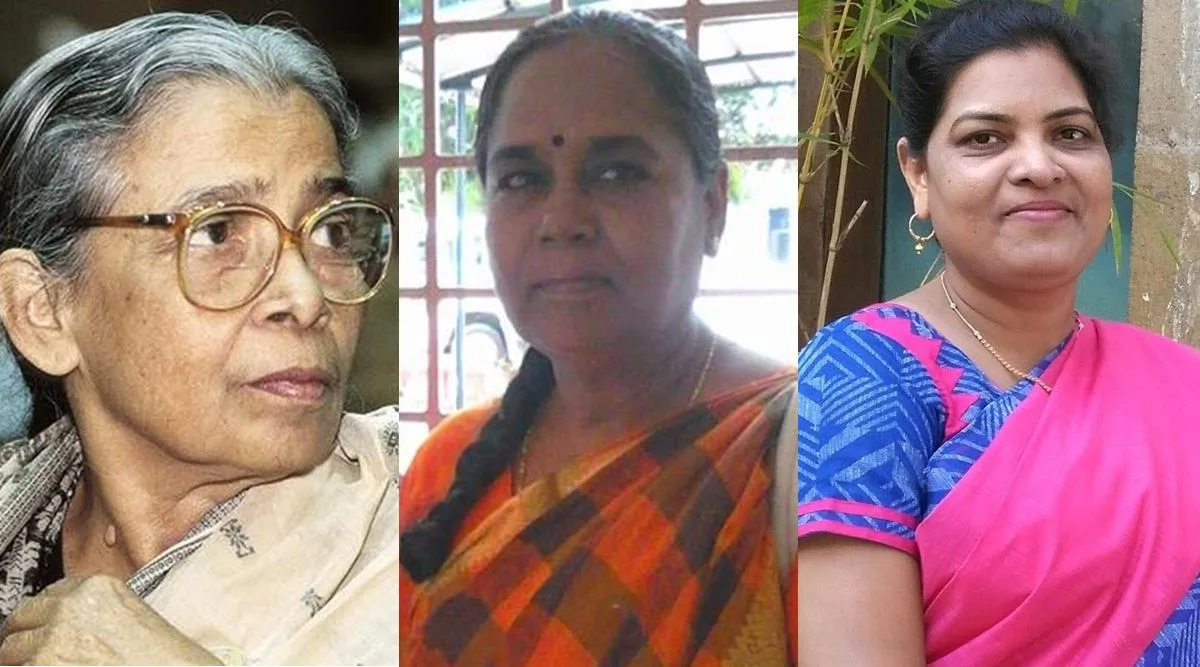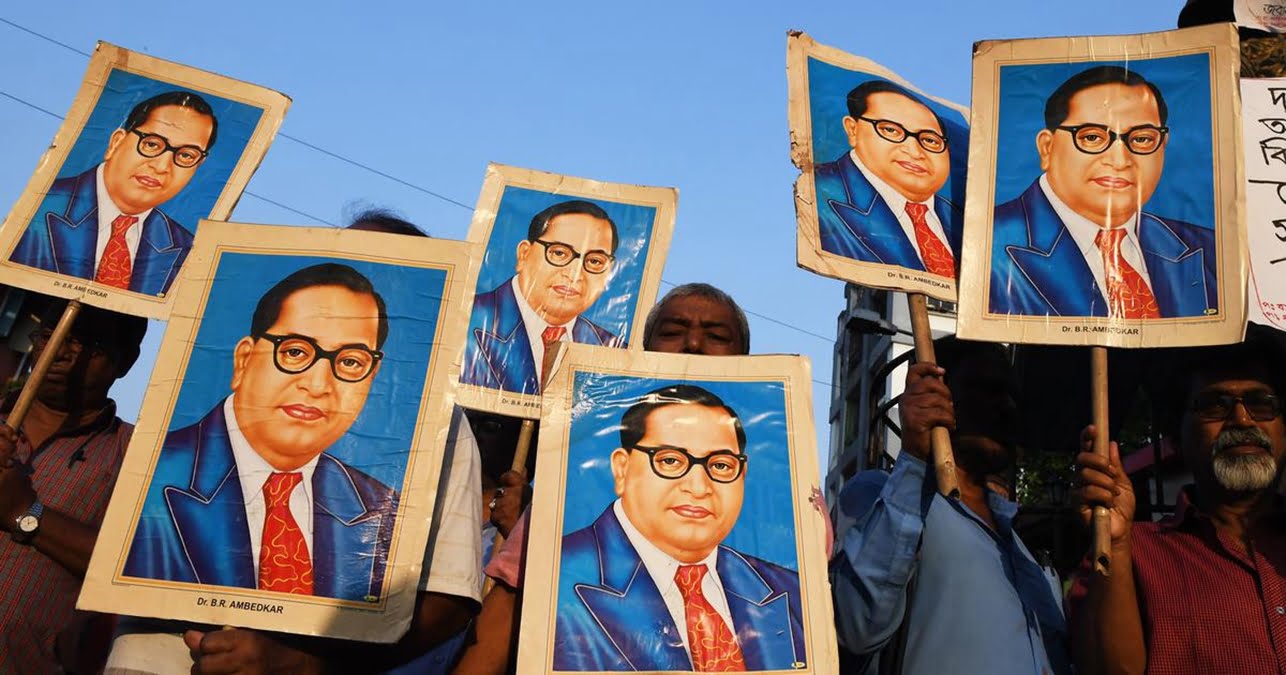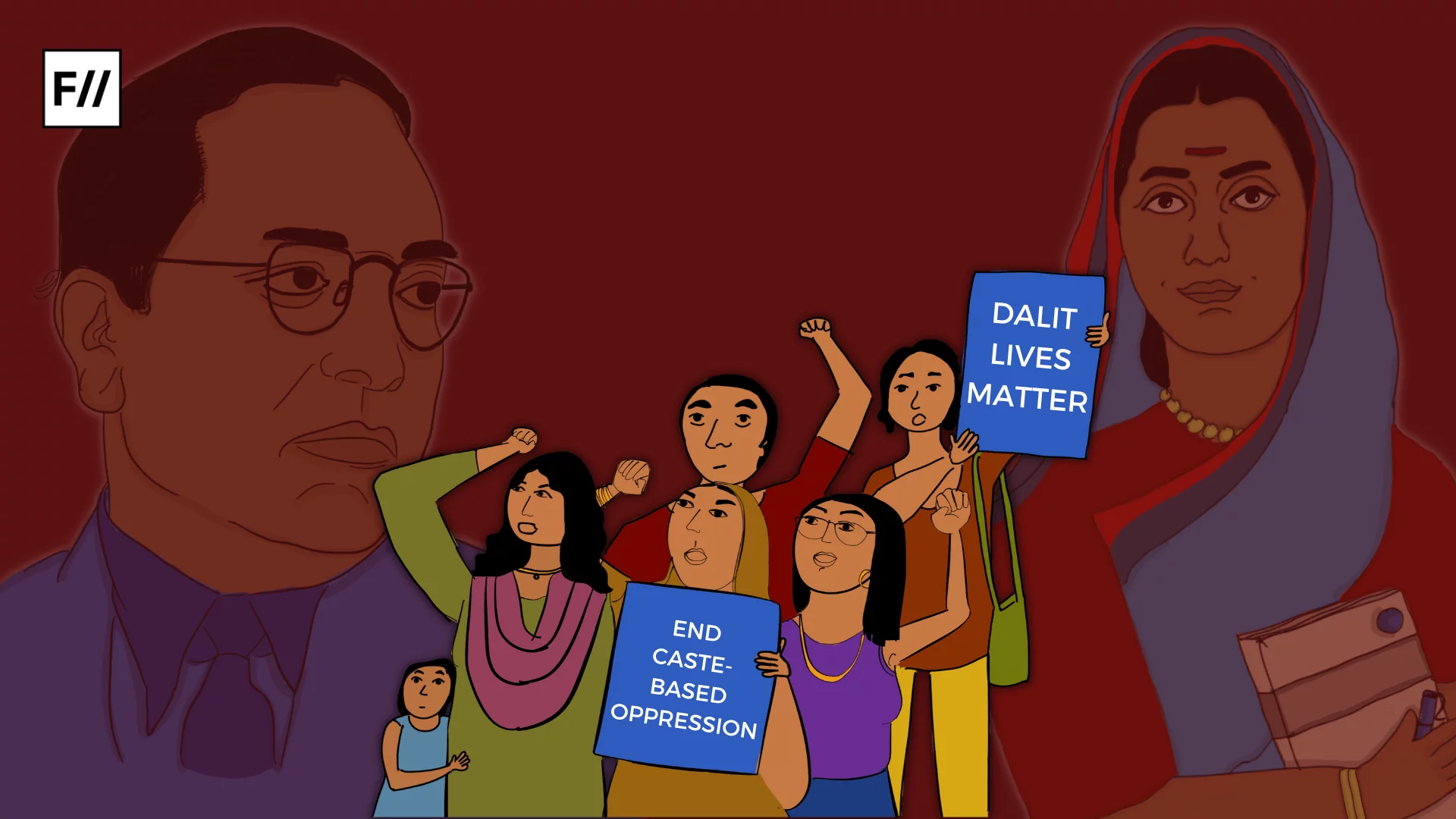“Without education wisdom was lost; without wisdom morals were lost; without morals development was lost; without development wealth was lost; without wealth the Shudras were ruined; so much has happened through lack of education”.
‘-Shetcaryaca Asud’ by Jyotirao Phule, 1881; translated by Gail Omvedt and Bharat Patankar.
The recent dismissal of the works of Bama and Sukirtharani from the undergraduate English literature syllabus of the University of Delhi became a contentious matter of discussion among the teacher and student body of various colleges affiliated to the University. Further, petitions were also moved against the arbitrary erasure of Mahasweta Devi’s ‘Draupadi’ from the syllabus course. The powerful works of Bama and Sukirtharani which capture the lived experiences of living in a casteist society and their consequential erasure from the course syllabus is a testament to the all pervasive nature of caste prejudices and the anxieties of such among Brahmanical institutions in India.

The powerful works of Bama and Sukirtharani which capture the lived experiences of living in a casteist society and their consequential erasure from the course syllabus is a testament to the all pervasive nature of caste prejudices and the anxieties of such among Brahmanical institutions in India.
The significant lack of counter-historical narratives and accounts gives us a miniscule picture of the larger Brahmanical hegemony prevalent in academic spaces. The convenient conversations in academia around ‘caste’ that are reduced to discrimination and reservation, fail to take into account the pervasiveness of Brahmanical primacy in knowledge production and pedagogy. Majority of academia is dominated by Savarnas, the ones who decide what knowledge is and decide what knowledge has to be produced and thus, are self appointed intellectual gatekeepers.
Also read: Caste & Habitus: Knowing The Unwritten Rules Of Social Conduct
However, the petition moved with the aim of demanding the University to retract its erratic decision indicates an emerging anti-caste consciousness among the social body of such spaces. Nevertheless, the persistent gatekeeping and lack of representation in academic courses becomes a structural problem when it implicitly alienates Bahujan students from their own cultural and ancestral history.
On the other hand, the inclusion of the works of Gail Omvedt and M.N Srinivas in my Sociology syllabus was my first introduction to the rhetoric of ‘caste politics’ in India. From my personal experience as a Dalit-Ambedkarite student, first or second generation Bahujan students hailing from rural areas and urban ghettos in such elite Savarna dominated institutions with a persistent caste conditioning, are historically denied a true sense and recognition of their own identity.
The caste consciousness of the many Bahujan families makes them reluctant towards adopting an Ambedkarite path. However, this caste conditioning among the Bahujans is reproduced and capitalised by the Brahmanical forces who systematically controvert Bahujans from a reflexive understanding of their identity through an Ambedkarite imagination. The vested interest of the upper caste forces is reflected in their attempt to discard and exclude critical thinking as a significant part of the Indian education system. Ambedkar promoted an idea of public education that aimed to challenge the domination of upper caste communities in order to become a means of social transformation by creating critical consciousness.
Hence, even a remote inclusion of narratives, research and history informed by ‘caste’ in the academic courses at the University level can be life affirming and consequential in reshaping how a marginalized person perceives and accommodates themselves in the elite social and cultural milieu of the society. This being a bare minimum, provides them with a life-giving impetus to assert their praxis in a Savarna dominated space like the University. The anxieties surrounding cultural alienation become a standpoint to condemn the exclusive nature of the fests celebrated in University colleges.
Invoking an Ambedkarite consciousness through solidarity and assertion is enabling for a Dalit-Bahujan student who once felt intimidated and isolated by the extravagant upper caste student culture. The inception of a critical and reflexive understanding of the inequality within the social structure of India is facilitated through the works of pioneering scholars and leaders like Dr. B.R Ambedkar, Jyotirao and Savitribai Phule among many others. From this point of view, one can gauge how detrimental, informing and emancipatory is the representation and incorporation of marginalized accounts of history, sociological studies, literature and lived experiences in academic courses. Universities become potential areas where Babasaheb Ambedkar’s idea of ‘Educate, Agitate and Organize’ can be truly realised.

Furthermore, engaging with an Ambedkarite discourse at the University equips a Bahujan student to challenge the social hegemony of the various cultural societies and study circles at the college. It empowers one with a right perception of their identity drawn from an Ambedkarite vision and provides them an assurance of their rightful entitlement to affirmative provisions. Such a thinking becomes crucial, especially because Savarna dominated Universities have historically questioned the ‘merit’ of Bahujan students through various exclusionary tactics.
It equips one to challenge the invisibility of caste in classrooms and assert counter narratives embedded in lived experiences. However, this identity assertion is often dismissed as “divisive” since upper caste teachers fail to understand why both public and intimate spaces should be caste informed for making Universities more hospitable and empathetic towards marginalized experiences and thereby, acknowledge their own privileged positions. The traditional behaviour that hyper-visibilizes the oppressed caste students and reduces them to their caste identity while providing impunity to oppressor caste identities is opposed and questioned in an Ambedkarite discourse.
Liberal, upper caste academics which hold the view that it is not in the nature of higher education to de-elitise itself is being powerfully challenged by a rustic force of Bahujans in Central Universities. The Bahujan critique of the Savarna institutions is not that they are disembodied or impersonal, but against the hegemonic and Brahmanical embodiment of Universities that disallows diversity and plurality to breathe in these spaces. Scholars like Rohith Vemula and J. Muthukrishnan will always be remembered for fighting against the pathological negation of their identity in such embodied Universities. That being said, the case of these scholars is an indication to the fact that Bahujans continue to be institutionally murdered, for them to be recognized as violated. The ‘suicide’ cases and incidents of institutional caste discrimination is merely an obligation for the Savarna opportunists to elevate their moral status.
Bahujans with a growing Ambedkarite vision strive to incorporate their praxis. They rightfully condemn the implicit and subtle form of casteism manifested in Universities. Through solidarity and shared experiences of struggle, they continue this united fight.

Nevertheless, a rising counter-force is witnessed against the domination of these academic agraharas. Bahujans with a growing Ambedkarite vision strive to incorporate their praxis. They rightfully condemn the implicit and subtle form of casteism manifested in Universities. Through solidarity and shared experiences of struggle, they continue this united fight. A part of this Ambedkarite struggle has also seen an acknowledgement among oppressor caste students about their caste privileges. The Ambedkarite discourse, that views education as a potential means of social transformation, in the process seeks to make Universities more democratic and inclusive.
Featured image source: Scroll.in
About the author(s)
Mansi Bhalerao is an Ambedkarite feminist, an undergraduate at Miranda House. She is an aspiring student of Sociology, trying to navigate and assert her praxis.




